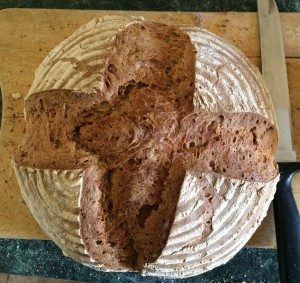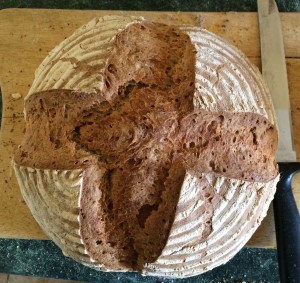A third of us don’t eat any of them, so it’s time to celebrate those wholegrains!

With a world of contradictory advice available online and even within health services, it’s easy to feel concerned or worried about what we should and shouldn’t eat. One thing most people can agree on though is that wholegrains do help keep us healthy.
So, what exactly is a wholegrain? Simply it’s ingredients which are simply grains. That means wheat, oats or barley that have kept all the edible parts after they’ve been processed for food use – using the ‘whole’ of the ‘grain’.
If you’re looking for suggestions, it’s things like wholemeal bread, porridge oats, brown rice and brown pasta and the recommendations are that we eat up to three portions (16g each) a day. But despite the nutritional benefits, National Diet and Nutrition Surveys show that 95% of UK adults fail to reach three servings a day. In fact, on average, most of us don’t even eat that much in a whole week. Most concerningly, almost a third of us don’t eat any at all!
Here come this week’s 6 grainy facts:
1. Nearly all our ‘daily bread’ has NO wholegrains, and lack the nutritional qualities. The bread available in the supermarkets is made using bleached white flour that has most of the goodness removed but added gluten to make it fluffy. For more on bread click here.
2. More than 17,000 years ago, humans gathered the seeds of plants and ate them. After rubbing off the husks, early people simply chewed the kernels raw, parched or simmered.
3. Wheat originated in the “cradle of civilization” in the Tigris and Euphrates river valley, near what is now Iraq.
4. The Roman goddess, Ceres, who was deemed protector of the grain, gave grains their common name today – “cereal.”
5. Rye is good for the environment. It’s been used as a winter cover crop, especially in organic farming, for generations. Because it has deep roots, rye is able to capture nutrients, enhance soil health, prevent soil erosion, and reduce weeds without the use of herbicides.
6. Whole grains help the digestive system, with the fibre content keeping bowel movements regular (studies have shown that people who eat more fibre need fewer drugs to help with movements). And they help ward off diverticulosis, the condition in which little pouches form in the colon wall, causing inflammation, constipation, diarrhea and pain. Fibre is responsible for much of the benefit, but whole grains also contain lactic acid, which promotes “good bacteria” in the large intestine. These organisms aid digestion, promote better nutrition absorption, and may even beef up the body’s immune system.
If you’re looking for advice and recipes, check out the UK grains website promotes wholegrain foods.
Best of all, by choosing to eat more wholegrain foods you can also support some of Britain’s artisan producers who are making cereals, cakes, biscuits and bread from grains grown in Britain. To find businesses offering wholegrain foods click here Or for producers or retailers in your area use our local food map here.
If you have a favourite recipe using wholegrains then why not share it for a chance to win a prize? Please video your recipe and add it to KIS (Keep it Simple) Cookery. Please have a look at existing videos here and try and keep your video less than 2 minutes long.

